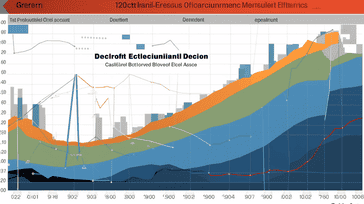
When it comes to financial planning, many people focus on investments, savings, and retirement planning. But one crucial aspect that often gets overlooked is insurance. Integrating insurance into your overall financial strategy can maximize your financial stability and provide a solid foundation for your future.
In this section, we'll explore the importance of insurance in financial planning. We'll discuss the different types of insurance, the benefits of adequate coverage, how to find affordable insurance options, and how to seamlessly integrate insurance into your financial plan.
Key Takeaways:
- Integrating insurance into your overall financial strategy is vital for long-term financial stability.
- Adequate coverage can mitigate risks and protect you from unexpected events.
- There are different types of insurance available, such as auto, health, life, and home insurance.
- It's crucial to evaluate your coverage needs and find affordable insurance options that fit your budget.
- Insurance can complement your investment and retirement strategies, providing a comprehensive approach to financial stability.
Understanding Different Types of Insurance
Insurance is an essential part of your financial plan, providing a safety net for your assets and your future. There are several types of insurance available to protect against different risks and unexpected events. Here's a breakdown of the most common types of insurance:
Auto Insurance
If you own a car, auto insurance is mandatory in most states. Auto insurance provides financial protection in the event of an accident, theft, or damage to your vehicle. It can also cover medical expenses and legal fees resulting from an accident.
When selecting auto insurance, it's essential to consider the level of coverage you need, such as liability, collision, and comprehensive. Liability insurance covers damages to others involved in an accident, while collision and comprehensive coverage provide financial protection for your vehicle.
Health Insurance
Health insurance is crucial to protect against high medical costs resulting from unexpected illnesses or injuries. There are several types of health insurance plans available, including HMOs, PPOs, and high-deductible health plans. Each plan comes with different costs and benefits, so it's essential to compare options and choose the right coverage for your needs.
Without health insurance, medical bills can quickly accumulate, leading to severe financial strain. With health insurance in place, you can focus on recovering your health, rather than worrying about the financial burden of medical treatment.
Life Insurance
Life insurance provides financial support for your loved ones in the event of your passing, ensuring that they can maintain their standard of living without your income. There are two main types of life insurance: term life insurance and permanent life insurance. Term life insurance provides coverage for a specific period, while permanent life insurance provides coverage for your entire life.
When selecting life insurance, it's essential to consider factors such as your age, health, and financial objectives. Life insurance can be an essential component of your financial plan, providing peace of mind and financial security for your loved ones.
Home Insurance
Home insurance provides financial protection for your home and its contents in the event of damage, theft, or other unexpected events. It can also provide liability coverage in the event someone is injured on your property.
When selecting home insurance, it's essential to consider the level of coverage you need, including the structure of your home and your personal belongings. Different policies offer varying levels of coverage, so it's important to compare options and choose the best policy for your needs.
Overall, insurance is an essential part of your financial plan, providing protection against unexpected events and ensuring long-term financial stability. By understanding the various types of insurance available and selecting the right coverage for your needs, you can have peace of mind knowing that you and your assets are protected.
The Importance of Insurance Coverage

Insurance coverage is a crucial component of any comprehensive financial strategy. It provides a safety net that can protect you and your assets from unexpected events. While most people understand the importance of insurance, they may not always have adequate coverage or a well-thought-out strategy.
Having insurance coverage is not just about protecting yourself from financial losses. It is also about providing peace of mind, knowing that you are prepared for any unforeseen event. Without proper coverage, a single incident could lead to long-term financial consequences.
Tip: When considering insurance coverage, it's essential to evaluate your specific needs and risks. This evaluation will ensure that you have adequate protection and that the coverage you choose aligns with your financial goals and objectives.
One way to evaluate your coverage needs is to assess your current financial situation. This assessment should include an analysis of your assets, liabilities, income, and expenses. Additionally, consider potential risks that could derail your financial security, such as a medical emergency, natural disaster, or accident.
Why Insurance Coverage is Essential to Your Financial Security
Insurance coverage can help mitigate risks and protect your financial security by providing:
- Financial stability in the event of unexpected events such as accidents, illnesses, or natural disasters
- Protection against liability claims
- Replacement of lost or damaged assets
- Income replacement in the event of disability or death
Without adequate insurance coverage, any of these events could have a severe impact on your finances, potentially leading to bankruptcy or long-term financial hardship.
Integrating Insurance Coverage into Your Financial Strategy
To truly integrate insurance coverage into your financial strategy, it's essential to evaluate your coverage needs regularly. Life events such as marriage, children, purchasing a home, or changes in employment can all impact your insurance needs. Evaluating your coverage needs regularly will ensure that you have adequate protection in place for your current situation.
Note: A comprehensive financial strategy should also consider risk management, such as emergency funds, estate planning, and tax planning. Insurance coverage is just one piece of the puzzle when it comes to achieving long-term financial security.
Finding Affordable Insurance Options
When it comes to insurance, finding affordable options can be a challenge. However, there are strategies you can use to identify policies that fit your budget without sacrificing coverage.
Obtaining Insurance Quotes
One way to find affordable insurance is to obtain quotes from multiple providers. Insurance quotes can give you an idea of the cost of coverage and the level of protection offered. You can obtain quotes online or by contacting insurance agents directly.
| Provider | Policy Type | Monthly Premium |
|---|---|---|
| ABC Insurance | Auto Insurance | $75 |
| XYZ Insurance | Auto Insurance | $85 |
| 123 Insurance | Auto Insurance | $65 |
Comparing quotes can help you find the best policy for your needs. Be sure to consider not only the cost but also the coverage and deductibles offered.
Factors Affecting Insurance Premiums
The cost of insurance is impacted by various factors, including:
- Your age and gender
- Your driving record (for auto insurance)
- Your health status (for health insurance)
- The value of your assets (for home insurance)
Understanding the factors that impact insurance premiums can help you make informed decisions when choosing a policy.
Maximizing Your Coverage
In addition to obtaining quotes and understanding premium factors, there are other strategies you can use to maximize your insurance coverage:
- Bundle policies to receive discounts
- Consider higher deductibles to lower premiums
- Review your policy annually and adjust coverage as needed
By following these tips, you can find affordable insurance options that provide the protection you need to achieve your financial goals.
Integrating Insurance into Your Financial Plan

Financial planning is all about creating a roadmap for your future. It involves setting goals, developing a strategy, and making informed decisions to achieve your desired outcome. One crucial aspect of financial planning is integrating insurance into your overall strategy.
Insurance can provide a solid foundation for your financial future by mitigating risks and protecting your assets. By incorporating insurance coverage into your financial plan, you can ensure that unexpected events don't derail your progress towards your goals.
So, how do you integrate insurance into your financial plan? The first step is to assess your coverage needs. Evaluate your current insurance policies and determine if they provide adequate protection. Consider your assets, liabilities, and financial goals to determine what coverage you need.
Once you have assessed your coverage needs, it's time to consider what types of insurance you require. There are various types of insurance available, including life insurance, home insurance, auto insurance, and health insurance. Understanding the benefits and coverage provided by each type is essential when making decisions about which policies to purchase.
Life Insurance
Life insurance is an essential component of a comprehensive financial plan. It provides income replacement, covers debts, and ensures the financial well-being of your loved ones in the event of your passing. When selecting a life insurance policy, consider your income, debts, and family's financial needs.
Home Insurance
Your home is one of your most valuable assets, and protecting it is crucial. Home insurance provides coverage for damage or loss to your home and personal belongings. When choosing a policy, consider the level of coverage you need to protect your home adequately and your budget.
Auto Insurance
Auto insurance is mandatory in most states and covers you and your vehicle in the event of an accident, theft, or other risks. When selecting a policy, consider the mandatory coverage requirements and additional options available to ensure your financial security on the road.
Health Insurance
Health insurance is another essential component of your financial plan. It covers medical expenses and provides financial protection in the event of illness or injury. When selecting a health insurance policy, consider your health needs, budget, and coverage options.
Integrating insurance into your financial plan can be challenging, but it's essential to ensure your long-term financial stability. With careful planning and consideration of your coverage needs, you can create a comprehensive strategy that provides peace of mind and protects your financial future.
Benefits of Life Insurance
Life insurance is a crucial component of any comprehensive financial plan, providing a safety net for your loved ones in the event of your passing. It is an excellent way to ensure your family's financial stability and provide peace of mind, knowing they will be taken care of even after you're gone.
Life insurance can be used in a variety of ways to support your financial goals, such as income replacement, covering debts, and funding future expenses. It can provide your loved ones with the financial resources they need to maintain their lifestyle and achieve their long-term objectives.
Types of Life Insurance
There are two primary types of life insurance: term life insurance and permanent life insurance.
| Term Life Insurance | Permanent Life Insurance |
|---|---|
| Provides coverage for a specific period, typically 10-30 years. | Provides coverage for your entire life, as long as premiums are paid. |
| Generally less expensive than permanent life insurance. | Can accumulate cash value over time, which can be borrowed against or used to pay premiums. |
| Often used for income replacement and debt coverage. | Often used for estate planning and long-term financial goals. |
When choosing which type of life insurance to purchase, it's crucial to consider your specific needs and financial objectives. A financial advisor can help you evaluate your options and make an informed decision.
Integrating Life Insurance into Your Financial Plan
Life insurance can be seamlessly integrated into your overall financial plan, complementing your investment and retirement strategies. It is an excellent way to protect your family's financial future and ensure that your legacy lives on, even after you're gone.
- Discuss your life insurance needs with a financial advisor, taking into account your financial goals and budget.
- Compare policies and premium rates to find the best coverage for your needs.
- Regularly review and update your life insurance coverage as your financial circumstances change over time.
By integrating life insurance into your financial plan, you can enjoy the peace of mind that comes from knowing your loved ones will be taken care of in any eventuality.
Protecting Your Assets with Home Insurance

When it comes to financial planning, protecting your home is a crucial component of your strategy. Your home is likely your most valuable asset, and it's important to ensure that it's adequately covered in case of unexpected events such as natural disasters, theft, or accidents. This is where home insurance comes in.
Home insurance provides coverage for your dwelling, personal property, and liability protection. It can help you rebuild or repair your home in the event of damages, replace stolen or damaged personal property, and provide legal and medical expense coverage if someone is injured on your property.
Types of Home Insurance Policies
There are several types of home insurance policies available, and it's important to choose the right one for your specific needs. Some of the most common types include:
| Type of Home Insurance Policy | What it Covers |
|---|---|
| Dwelling Insurance | Covers damages to the physical structure of your home |
| Personal Property Insurance | Covers damage or loss of personal property such as furniture, electronics, and clothing |
| Liability Insurance | Provides legal and medical expense coverage if someone is injured on your property |
| Additional Living Expenses Insurance | Covers costs for temporary housing and living expenses if your home is rendered uninhabitable due to damages |
Factors That Affect Home Insurance Premiums
Home insurance premiums are calculated based on several factors, including:
- The value of your home and personal property
- The location of your home
- The age and condition of your home
- Your claims history
- Deductible amount
When shopping for home insurance, it's essential to compare policies and obtain insurance quotes to find the best coverage at the most competitive rates. By doing so, you can ensure that you have adequate coverage for your home without breaking the bank.
Protecting your home with the right insurance coverage is a critical element of your overall financial planning strategy. With the right policy in place, you can have peace of mind knowing that your most valuable asset is safeguarded in case of unexpected events.
Navigating Auto Insurance for Financial Security
Auto insurance is an essential component of any comprehensive financial plan, providing protection against unforeseen expenses resulting from accidents, theft, or other risks.
When considering auto insurance, it's important to understand the different types of coverage available and how they fit into your overall financial strategy. Liability coverage is mandatory in most states, protecting you from damages you may cause to others while driving.
In addition to liability coverage, you may choose to add collision coverage to protect your own vehicle from damages resulting from collisions with other cars or objects. Comprehensive coverage can also be added to provide protection from non-collision events, such as theft, vandalism, or weather-related damage.
When selecting the right auto insurance policy, it's important to balance the level of coverage with your budget. Higher coverage limits may provide greater financial protection, but they also come with higher premiums.
To find the most affordable auto insurance policy that meets your needs, consider obtaining quotes from multiple providers and comparing coverage options and premiums. You may also be eligible for discounts based on factors such as safe driving records or bundle deals with other insurance policies.
Overall, integrating auto insurance into your financial strategy is a smart way to protect your assets and ensure long-term financial stability. By understanding your coverage options and finding the right policy that fits your budget, you can confidently navigate the road ahead.
Securing Your Health with Health Insurance
When it comes to financial planning, health insurance is a critical component of safeguarding your overall well-being. It provides coverage for medical expenses and can protect you from significant financial burden in the event of unexpected health issues. With the rising costs of healthcare, having health insurance is more important than ever.
There are various types of health insurance plans available to meet your specific needs, such as:
- Health maintenance organizations (HMOs)
- Preferred provider organizations (PPOs)
- Point of service (POS) plans
- High deductible health plans (HDHPs)
Each type of plan has its own benefits and drawbacks, which is why it's important to evaluate your options to choose the best coverage for you and your family.
Benefits of Health Insurance
Having health insurance provides numerous benefits, including:
- Access to preventive care services, such as regular check-ups and screenings, which can help detect and prevent health issues before they become serious and more expensive to treat.
- Coverage for medical expenses, including doctor visits, hospital stays, and prescription medications.
- Protection from high medical costs that can quickly deplete your savings or cause significant debt.
- Peace of mind knowing that you and your family are covered in the event of unexpected health issues.
Choosing the Right Coverage
When selecting a health insurance plan, it's important to consider your budget, healthcare needs, and any medical conditions you or your family members may have. Look at the plan's deductibles, copays, and coinsurance to determine the costs you'll be responsible for paying out-of-pocket. Also, consider any limitations or restrictions on coverage, such as network providers or prescription medications.
Integrating Health Insurance into Your Financial Plan
Integrating health insurance into your overall financial plan can provide added security and peace of mind. Consider the cost of your premiums and out-of-pocket expenses when budgeting for healthcare costs. Additionally, take advantage of any health savings accounts (HSAs) or flexible spending accounts (FSAs) that may be available to you.
By incorporating health insurance into your financial strategy, you can ensure you and your family are protected from the high cost of medical expenses and can focus on achieving your long-term financial goals.
Conclusion
Integrating insurance into your financial plan is crucial for achieving long-term financial stability. Having comprehensive coverage can mitigate risks, protect your assets, and provide peace of mind. By incorporating insurance into your overall strategy, you can ensure that unexpected events do not derail your financial goals.
To achieve optimal financial stability, it is essential to evaluate your coverage needs and make informed decisions when selecting insurance policies. Consider the various types of insurance available, such as auto, health, life, and home insurance, and understand the benefits and coverage provided by each.
Finding affordable insurance options that fit your budget requires research and comparison shopping. Obtain insurance quotes and evaluate policies to find the best coverage at the most competitive rates. Understand the factors that affect insurance premiums and how to save on costs.
As you develop your financial plan, consider how insurance can complement your investment and retirement strategies. Life insurance, for instance, provides income replacement, covers debts, and ensures the financial well-being of your loved ones in the event of your passing. Home insurance, on the other hand, safeguards your most valuable asset, providing coverage options that meet your specific needs.
By securing adequate insurance coverage, you can protect yourself and your loved ones from unexpected events and safeguard your financial future. Ensure that your financial strategy incorporates comprehensive insurance coverage to achieve long-term financial stability.
FAQ
What is the importance of integrating insurance into your overall financial plans?
Integrating insurance into your financial plans is crucial for maximizing financial stability and providing a solid foundation for your future. Insurance can mitigate risks, protect assets, and ensure long-term financial security.
What are the different types of insurance?
There are various types of insurance available, including auto insurance, health insurance, life insurance, and home insurance. Each type provides specific benefits and coverage to protect you and your assets.
Why is adequate insurance coverage important?
Adequate insurance coverage is crucial for financial security as it protects you from unexpected events and mitigates risks. Evaluating your coverage needs and making informed decisions ensures that you have the necessary protection in place.
How can I find affordable insurance options?
Finding affordable insurance options involves strategies such as obtaining quotes, comparing policies, and understanding the factors that affect insurance premiums. By doing so, you can find the best coverage at competitive rates that fit your budget.
How can insurance be integrated into a financial plan?
Insurance can be seamlessly integrated into your financial plan by complementing your investment and retirement strategies. By incorporating insurance, you can achieve a comprehensive approach to financial stability.
What are the benefits of life insurance?
Life insurance provides income replacement, covers debts, and ensures the financial well-being of your loved ones in the event of your passing. It supports your financial goals and provides peace of mind.
How does home insurance protect my assets?
Home insurance safeguards your most valuable asset by providing coverage options for homeowners. It protects against various risks and helps you choose the right policy that meets your specific needs.
What is the role of auto insurance in financial security?
Auto insurance protects you from accidents, theft, and other risks associated with owning a vehicle. It ensures your financial security on the road and helps you comply with mandatory coverage requirements.
How does health insurance contribute to financial well-being?
Health insurance plays a vital role in your financial well-being by protecting you from unexpected medical expenses. Understanding different types of health insurance plans and choosing the right coverage ensures you and your family are protected.
Why should insurance be integrated into financial stability strategies?
Integrating insurance into financial stability strategies is essential for mitigating risks, protecting assets, and providing peace of mind. It ensures comprehensive coverage and safeguards your future.







